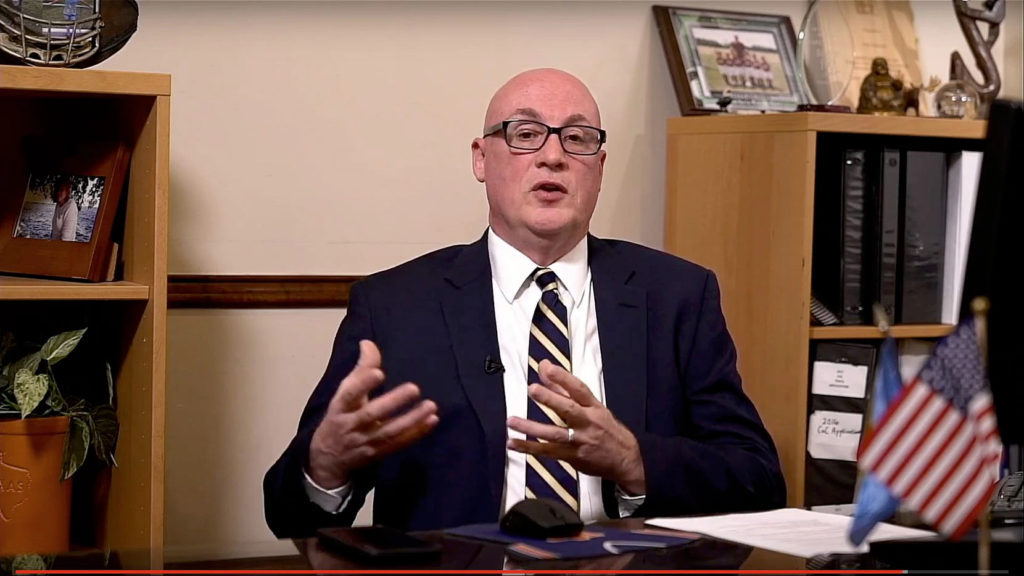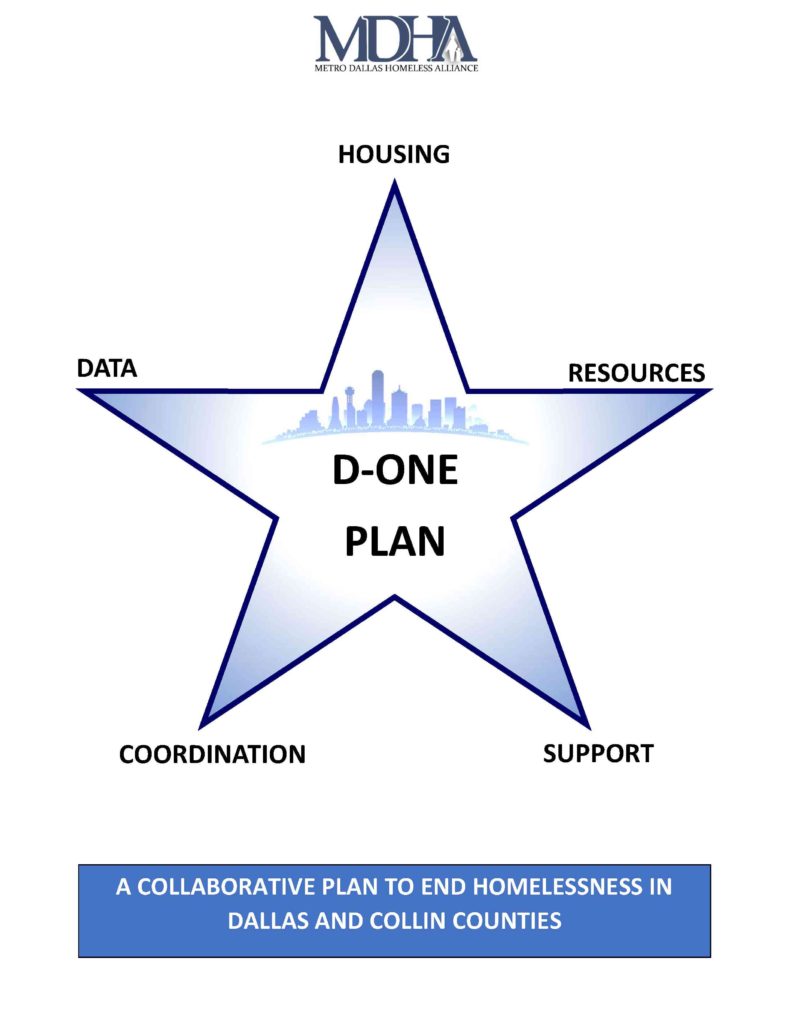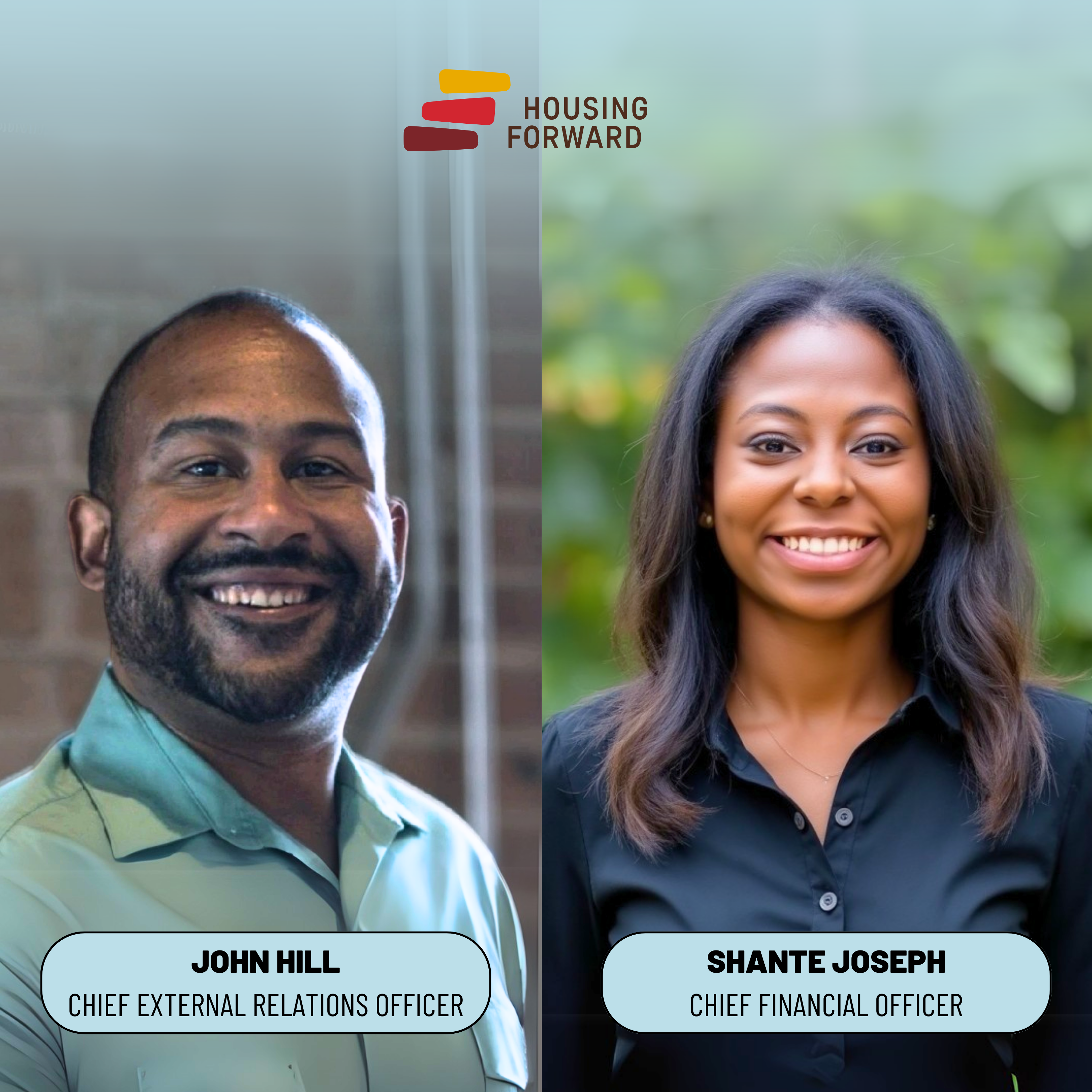Dallas and Collin Counties’ Homeless Rehousing System 2015-2020
In our blog series, Ending Homelessness in Dallas – Putting Theory Into Practice and our educational video by the same name, we chart the progress the Metro Dallas Homeless Alliance (MDHA) and its partners have made since 2015. MDHA built the components of an effective homeless rehousing system, began to utilize the system to better house people, while continuing to improve it, created and began to implement its D-ONE Plan, and began to turn the tide, lowering the rate of homelessness in Dallas for the first time in years.

Carl Falconer, MDHA President and CEO, delivering his 2020 State of Homelessness Address
As Carl Falconer, MDHA President and CEO, emphasized in his 2020 State of Homelessness Address, what Dallas needed next was the political will to do what works and “go big.” As Carl had already mentioned in his 2019 State of Homelessness Address, and as the Texas Tribune wrote that same year, we did not need to look far for a community that had figured this out a few years before us, Houston, who had halved its homeless population.
Enter Clutch Consulting
As Carl was preparing his 2020 address, a group of funders proposed that our homeless rehousing system bring in none other than Mandy Chapman Semple, who had been key to Houston’s success. Mandy and her Clutch Consulting Group helps communities across the country transform their homeless rehousing systems. Clutch are very particular about who they work with. A community must have several components and structures already in place, as well as the political will to do what works.
Clutch met with MDHA leaders, local governments, funders, homeless service providers, and persons experiencing homelessness. They carefully studied current and past homeless rehousing system plans and programs, and conducted site visits, surveys, and focus groups. They were emphatic: Dallas was ready to take the next step, and they were ready to walk alongside us to make it happen. Clutch will be here, on the ground, for the next eighteen months, helping our community operationalize MDHA’s D-ONE Plan through a collective action plan, as our community transforms its homeless rehousing system.
System Transformation 2020-2022
This system transformation method is built on dynamic and nimble homeless rehousing system workgroups. These workgroups accomplish specific tasks to conceive, test, and implement policies and practices that improve how providers work together to make services more efficient, providing the necessary capacity and training resources to ensure workgroups meet their objectives.
Clutch guides the system in aligning activities to achieve goals, refining how its components connect to ensure swift exits from homelessness. They help outline how a community builds out its system, produces measurable results and hits annual milestones. Crucially, they help execute a coordinated effective community investment strategy to pay for the resources necessary to end homelessness.
Board Governance
High performing communities usually have two separate boards, one overseeing the system and one overseeing its backbone organization. Though the backbone organization staffs and organizes the work of both itself and the entire system, separate boards allow communities to maintain equal focus on both the system and the backbone organization, without the needs of the one subsuming the needs of the other. MDHA’s board, which currently serves as the system board too, plans to reform its governance and create two boards by the end of 2020.
System Transformation Supporters
Our community owes a debt of gratitude to The Collaborative on Homelessness for underwriting Clutch’s work. The Collaborative “is a coalition of local philanthropy committed to supporting transformational change to end homelessness in Dallas and Collin counties. Together with nonprofits and community leaders, we will create a strategic, coordinated, and measurable system of service that empowers and accelerates individuals to achieve permanent housing.”
 2021-2025 Goals
2021-2025 Goals
MDHA calls on all members of the community to join the fight to achieve these ambitious and specific goals over the next few years:
- Effectively End Veteran Homelessness by 2021
- Reduce Chronic Unsheltered Homelessness by 2023
- Reduce Family and Youth Homelessness by 2025
We can’t do it without everyone, and we mean everyone, on board, including you!







